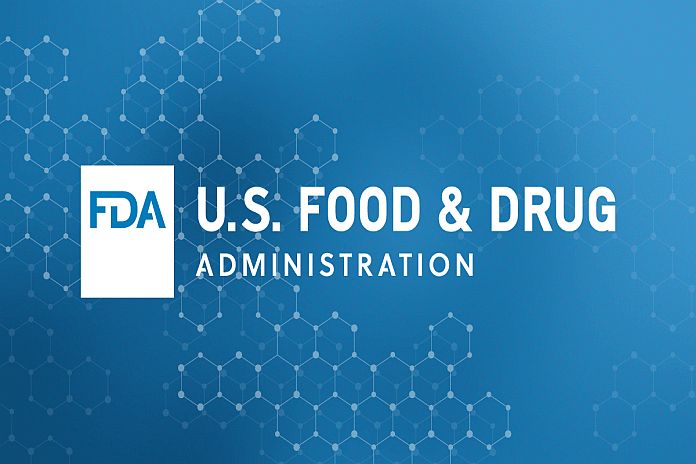WASHINGTON, USA – More women die from heart disease than from any other cause: about one in five American women, according to the Centers for Disease Control and Prevention.
You can take action now to reduce your risk. Resources from the US Food and Drug Administration can help women of all ages learn how to use FDA-approved drugs and devices safely to prevent and treat heart disease.
The FDA offers fact sheets, videos, and other web-based tools to teach you not only about heart disease but also conditions such as diabetes and high blood pressure, which can increase a woman’s heart disease risk.
The FDA also offers the Heart Health for Women page to connect women to resources to support heart-healthy living. Watch this FDA Office of Women’s Health educational videoExternal Link Disclaimer to learn more about cardiovascular disease and women’s heart health. The video is part of an initiative to share knowledge and news on women’s health (KNOWH).
“Many women do not realize that they are at risk for heart disease. Understanding that women may have unique risk factors and can present with non-typical symptoms is critical to fighting heart disease in women,” said Dr Kaveeta Vasisht, FDA’s associate commissioner for Women’s Health.
The risk of heart disease increases for everyone as we age. For women, the risk goes up after menopause, but younger women can also develop heart disease.
Here are some tips on how to reduce your risk and make informed decisions about your health. Even small changes can help.
Eight tips to reduce your risk
- Know your risk factors.Nine out of ten women have at least one risk factor for heart disease. Risk factors include:
- High blood pressure;
- High cholesterol;
- Diabetes;
- Smoking;
- A family history of premature heart disease.
Obesity also increases the risk of developing high blood pressure, high cholesterol, and pre-diabetes, which increases the risk of heart disease. With the exception of family history, you can modify the other risk factors to reduce your risk of heart disease.
- Manage current health conditions, including diabetes, high blood pressure, and high cholesterol.Talk to your health care provider to confirm the best treatment plan.
- Recognize symptoms of a heart attack in women, and call 9-1-1 if needed.Know that symptoms in women can be the same or different as those in men.
Symptoms can include:
- An ache or feeling of tightness in the chest, arm(s), neck, jaw, back, or abdomen;
- Shortness of breath;
- Nausea/vomiting;
- Lightheadedness;
- Extreme fatigue;
- Breaking out in a cold sweat.
As with men, the most common symptom of a heart attack in women is chest discomfort. But you can have a heart attack without chest pain or pressure. And women are more likely than men to have other symptoms, such as back pain, jaw pain, shortness of breath, indigestion, and nausea/vomiting.
If you have these symptoms and suspect you’re having a heart attack, call 9-1-1. Call even if you’re not sure, it could save your life.
- Do regular physical activity, and maintain a healthy weight. You don’t need to complete all activity at one set time, and it’s okay if you’re not a fan of the gym.
Walking may be one easy way to start. Talk to your health care provider about how much activity is right for you.
- Make heart-healthy food choices. For example, you can eat fruits and vegetables with each meal; limit saturated fat and added sugars; and eat more whole grains. Choose the leanest cuts of meat available, and prepare them in healthy ways.
The updated Nutrition Facts Label can tell you key information about the packaged foods you eat. It includes details about serving sizes and sodium, saturated fat, and added sugar. You can check with your health care provider to confirm the food choices best for you.
- Know daily use of aspirinis not right for everyone. Talk with a health care provider before you use aspirin to prevent heart attacks.
- If you smoke, try to quit.Check out How Smoking Affects Heart Healthand learn more about medicines to help you quit.
- Talk to a health care provider about whether you can participate in a clinical trial for a heart medication or procedure.A clinical trial is a research study that involves human volunteers. Visit the FDA’s Women in Clinical Trialspage to learn more.
Menopause and Hormone Therapy
Menopause does not cause heart disease. But the decline in estrogen after menopause may be one of several factors in the increase in heart disease risk.
Other risks, such as weight gain, may also increase around the time of menopause.
Hormone therapy can be used to treat some of the problems women have during menopause. However, the FDA has not approved any estrogen hormone replacement therapy for reduction of heart disease. Learn more about menopause and hormones.
Make a plan, take action
Work with your health care provider to make a plan for your heart health. No matter what routine you choose, make a list of your medicines and supplements and bring it with you to all your appointments. Talk to your health care provider if you have any questions.






